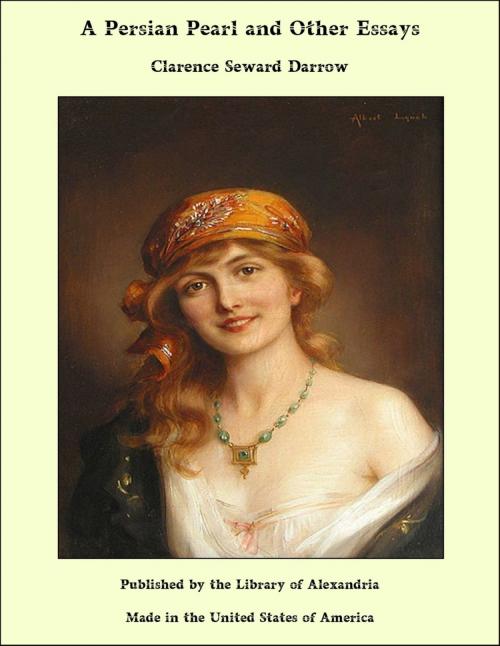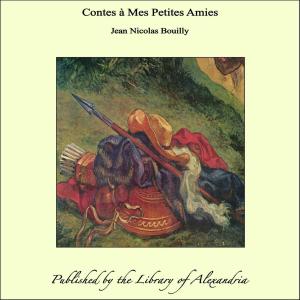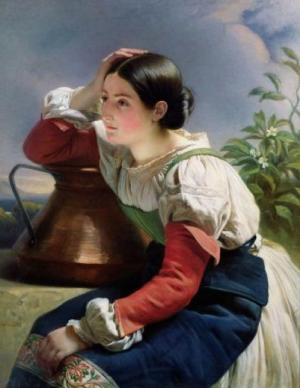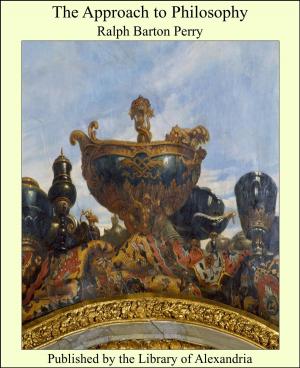A Persian Pearl and Other Essays
Nonfiction, Religion & Spirituality, New Age, History, Fiction & Literature| Author: | Clarence Seward Darrow | ISBN: | 9781465614490 |
| Publisher: | Library of Alexandria | Publication: | March 8, 2015 |
| Imprint: | Language: | English |
| Author: | Clarence Seward Darrow |
| ISBN: | 9781465614490 |
| Publisher: | Library of Alexandria |
| Publication: | March 8, 2015 |
| Imprint: | |
| Language: | English |
The reader and observer is constantly reminded that "there is nothing new under the sun." We no sooner find some rare gem of thought or expression than we discover that it is only an old diamond, polished anew, perhaps, and offered as an original stone. Neither the reader nor the writer is always aware that the gem is antique and the setting alone is new. The rich mine where the treasure was first found was exhausted in a few brief years, and then became like all the dust of all the worlds; but the gem polished and worn by time and use, ever sparkles and shines, regardless of the fact that the miner's name is forgotten and his work alone remains. Thus Nature, the great communist, provides that the treasures of genius, like her own bountiful gifts of sunlight, rain and air, shall remain the common property of all her children while any dwell upon the earth. Current literature seems to point to the ascendancy of what is often termed the "pessimistic school." In one sense this philosophy uncrowns man and places him in his proper relation to the great universe, of which he is so small a part; but while it makes less of man, it expects less from him, and covers his deeds with that cloak of charity, which is the legitimate garment of the great Unknown. But these modern reflections on life and its problems, its purposes and lessons, are far from new. Without venturing a guess as to their origin or age, we take up that old Persian Pearl,--the "Rubaiyat," and find on its musty pages the great thoughts and searching questions, which have ever returned to man since the intellect was born, and which will still remain unanswered when the last word shall have been spoken, and the race have run its course. It is nearly eight hundred years since Omar Khayyam, the Persian astronomer, philosopher, and poet, mused and wrote upon the uncertainty of life, the eternity of time and the mutability of human things. Since the rose bush was planted above his grave, the material world has been almost made anew. Art and literature have given countless treasures to the earth, and science has solved its mysteries without end. But the riddles of existence--the problems of life, the deep heart of the universe, the cause and purpose and end of all, are mysteries as dark and inscrutable as they were eight centuries ago.
The reader and observer is constantly reminded that "there is nothing new under the sun." We no sooner find some rare gem of thought or expression than we discover that it is only an old diamond, polished anew, perhaps, and offered as an original stone. Neither the reader nor the writer is always aware that the gem is antique and the setting alone is new. The rich mine where the treasure was first found was exhausted in a few brief years, and then became like all the dust of all the worlds; but the gem polished and worn by time and use, ever sparkles and shines, regardless of the fact that the miner's name is forgotten and his work alone remains. Thus Nature, the great communist, provides that the treasures of genius, like her own bountiful gifts of sunlight, rain and air, shall remain the common property of all her children while any dwell upon the earth. Current literature seems to point to the ascendancy of what is often termed the "pessimistic school." In one sense this philosophy uncrowns man and places him in his proper relation to the great universe, of which he is so small a part; but while it makes less of man, it expects less from him, and covers his deeds with that cloak of charity, which is the legitimate garment of the great Unknown. But these modern reflections on life and its problems, its purposes and lessons, are far from new. Without venturing a guess as to their origin or age, we take up that old Persian Pearl,--the "Rubaiyat," and find on its musty pages the great thoughts and searching questions, which have ever returned to man since the intellect was born, and which will still remain unanswered when the last word shall have been spoken, and the race have run its course. It is nearly eight hundred years since Omar Khayyam, the Persian astronomer, philosopher, and poet, mused and wrote upon the uncertainty of life, the eternity of time and the mutability of human things. Since the rose bush was planted above his grave, the material world has been almost made anew. Art and literature have given countless treasures to the earth, and science has solved its mysteries without end. But the riddles of existence--the problems of life, the deep heart of the universe, the cause and purpose and end of all, are mysteries as dark and inscrutable as they were eight centuries ago.















